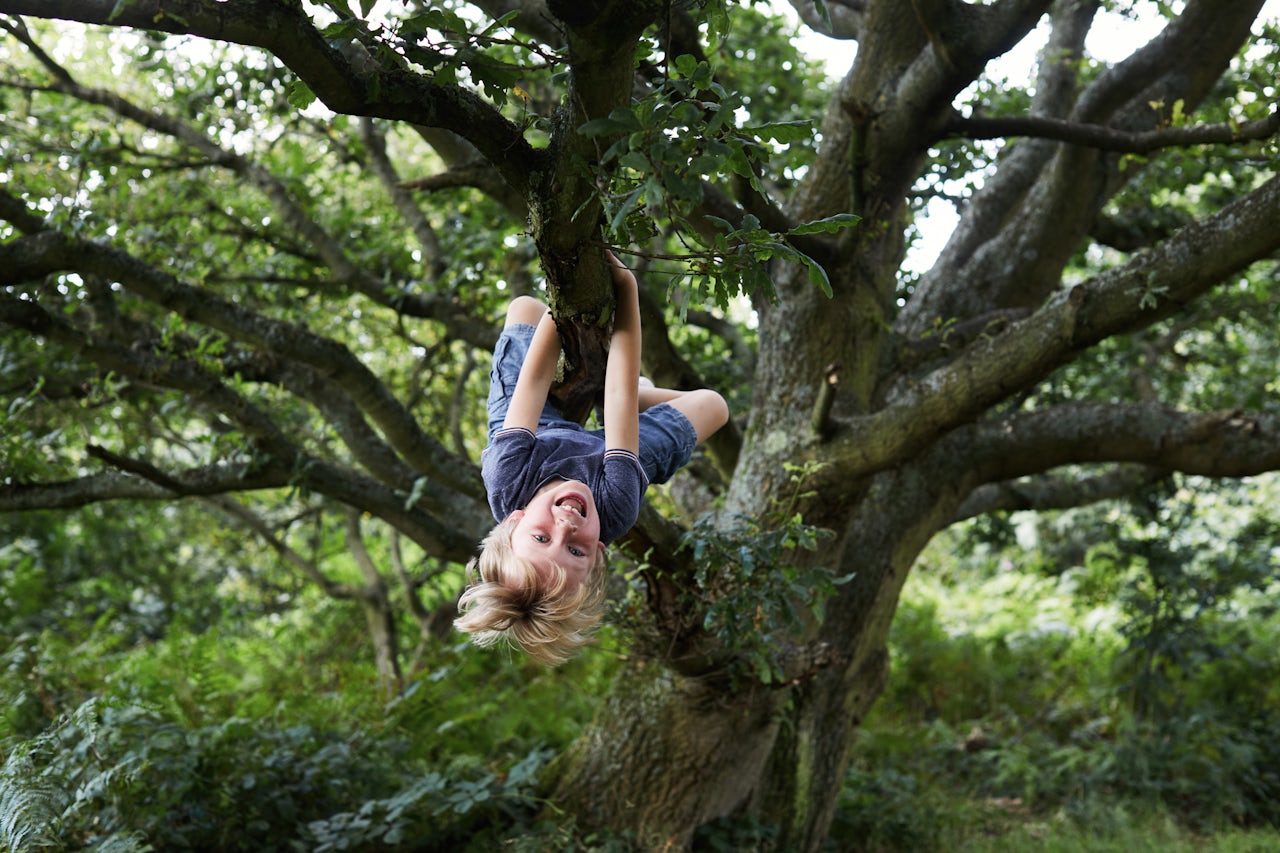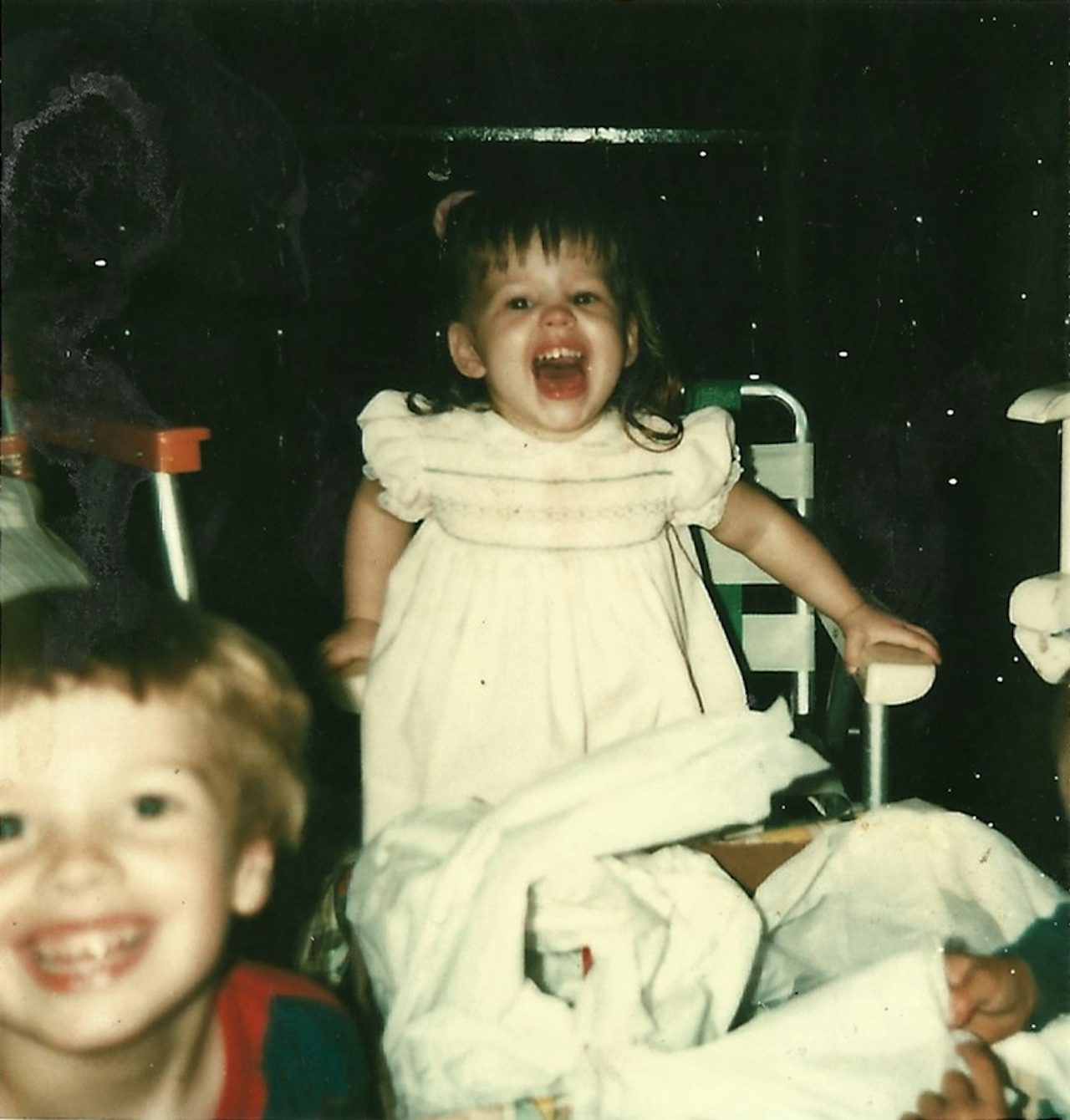Why are Americans so suffocatingly weird about their kids nowadays? In a 2016 Pew survey, only 30 percent of parents said kids should be allowed to play in a public park unsupervised before they’re 13 years old, though the country’s streets have never been safer. And yet, this style of care doesn’t seem to benefit anyone involved: not kids, not society, and definitely not the parents themselves. Caregivers cling to their charges, afraid of everything and nothing in particular. We have to save the kids, but if pressed on why or from what or what are you doing, we can’t always answer.
When novelist Kim Brooks faced this question, she opted to shrug off her 21st-century mom superego for just a moment and leave her 6-year-old son in the car in the Target parking lot while she ran in to grab a pair of headphones. Her new book — Small Animals: Parenthood in The Age of Fear — is the story of how Brooks came to regret that choice. The Target trip was right ahead of the family’s flight back from a stay at grandma and grandpa’s, and when they landed, Brooks discovered she was under investigation for neglecting her child.
As it happened, an onlooker saw Brooks’s child alone, recorded it on a cell phone, and informed the police — all without confronting Brooks, whose son was just fine. Small Animals, which was borne of a viral article she wrote for Salon in 2014, is about how Brooks copes with being formally charged as a Bad Mother in a society where that’s considered a serious crime.
Based on its premise, an informed reader might be surprised to find out the book’s writer is white. After all, even a brief review of the recent spate of articles about this topic reveals a disproportionate number of black mothers are targets of police intervention. In the author’s note Brooks tries to neutralize a line of criticism that she knows is coming: “They may argue that my experience of motherhood would not have been what it was if I had had more money or less, a more high-powered career or no career at all, a more supportive network of extended kin, a different group of friends and neighbors or if I were a single mother, a woman of color, an older or younger mother … I’d like to concede the point from the start.” I can understand wanting one’s story to be judged on its own merits, but the intro reads like an attempt to bracket off critical questions about race and class to the moments when Brooks contemplates how much worse her situation would be if she weren’t insulated by privileges.
Unsurprisingly, given her background, much of Small Animals feels like fictionalization. There’s a lot of dialogue, including reconstructed third-hand scenes. The book is short, and the seams where occurrences have been stitched into narratives show through. Like other books that emerge from viral articles, Small Animals includes the story of its publication and the public’s overwhelming response. I wish writers would leave these parts out; although a huge online reaction is a good reason for an agent or a publisher to bring a project into existence, I don’t find that information adds much to the actual books.
It’s no spoiler to say Brooks gets off without jail time. Though the reader is technically kept in suspense, we’re never really afraid that the private attorney recommended by her in-laws doesn’t have the whole thing under control, which he does. Brooks serves her 100 hours of community service at home: “I volunteered for the organizations from which my own kids benefitted — their soccer leagues and schools… My lawyer assured me that these were perfectly acceptable activities for fulfilling my volunteer hours, since they involved giving time to nonprofit organizations.” Pled guilty to “contributing to the delinquency of a minor” (most commonly associated with buying alcohol for teenagers), Brooks is sentenced to domesticity.
Small Animals is best when Brooks leaves her own (compelling, albeit article-length) story behind and starts talking with child development experts and advocates about the social changes in which she’s been unwillingly tucked. She meets with a family that has hired an expensive and outlandishly intrusive suite of parenting consultants, which clarifies how determined upper-class moms and dads can be — as well as how damaged their kids can get. Brooks also talks with “Free Range Kids” evangelist Lenore Skenazy, the leading American advocate for letting children do stuff on their own. The two commiserate about the moms and cops who won’t let them mother in a way they’re almost positive would be better. And yet, by the end, Brooks’s maternal superego has her evaluating her preschool son with an occupational therapist because he was exhibiting “sensory-seeking behavior,” according to his teacher.
Throughout the book, Brooks keeps asking the right question (Why are we like this?), but no one has an answer for her. “People don’t just change the way they live for no reason,” she suggests, reasonably, to Skenazy. “There has to be something behind it. Some reason or cause.” “Maybe,” Skenazy answers, “If you figure out what it is, you’ll have to let me know. In the meantime, do you have a lawyer?” There are some digressions into behavioral psychology — a discipline that has fallen on hard times , epistemologically — but what Brooks and the larger critical parenting discourse seem to be missing is a theory of history.
Perhaps that sounds like overkill, especially since there’s so much obviously wrong with mainstream concerted-cultivation parenting tactics and strategies that all a well-meaning caregiver should need in order to improve upon them is common sense. But even Brooks’s uncommon sense, knowledge, experience, and introspection aren’t enough to really force a change in the lives of her children, at least as recounted in the book. If parents want to improve their parenting in a way that goes beyond resume building, they have to look past both the immediate and existential causes, to the historical. In the closing decades of the 20th century, the state and employers transferred worker training costs to families. If parenting in general feels like harder work these days, that’s because it is.
The book gets closest to historical understanding when Skenazy explains the art of “yuppie jujitsu” to Brooks: In order to win over her reticent peer-moms, she has to convince them “if you don’t send your kids to the park and they don’t break their foot and have to get home on their bike by themselves, they will never get into an Ivy League school; they’ll never run a corporation; they will never earn a Fulbright or find a cure for cancer or have their own hit series on HBO or run for Congress. They’ll be fat, they’ll be lonely, they’ll be sad, they’ll be depressed and anxious and lost…” She continues. Parents are worried that, unless their kids accumulate extraordinary amounts of skills and accomplishments, they’ll be stuck as mere workers. Based on the way this country treats workers, that is a legitimate concern. But the more that families take on this work, the more competing they all have to do to keep pace. It yields a parenting arms race, with everyone desperate to raise the most profitable children.
American society uses mothers to prepare workers on the cheap. Erin Anderson, an occupational therapist, tells Brooks that she sees more and more mothers who were in business applying their professional skills to childrearing: “What I see is many of them doing for their children as they might have done in their job,” Anderson tells her. “So the kids are very scheduled, they’re in classes, the parents are super-educated, reading how to parent on the Internet instead of trusting instincts.” How fortunate for the child’s future employers, who gain in the form of highly qualified job applicants, which in turn allows them to cut wages.
It’s unreasonable to blame individual mothers for doing their (unpaid) jobs, at least as unreasonable as it would be to blame any given worker for enriching their boss. But like those workers, parents can’t just opt or enlighten themselves out of their historical situation. The future of the economy and the capitalist mode of production rely on their compliance. If American mothers (and other primary caregivers) want to raise kids in a way that is not obviously immiserating, it’s going to take more than consciousness raising or yuppie jujitsu, it will take a war. If moms like Brooks want to fight it, they can count me in.


